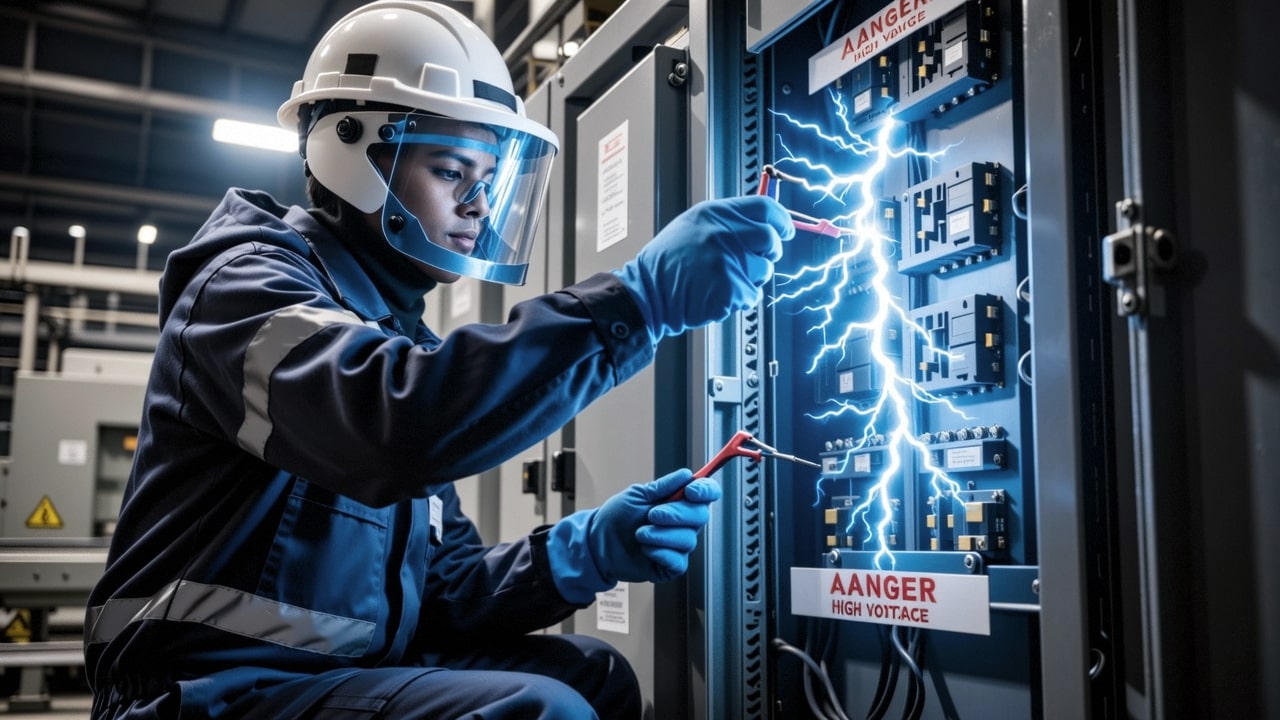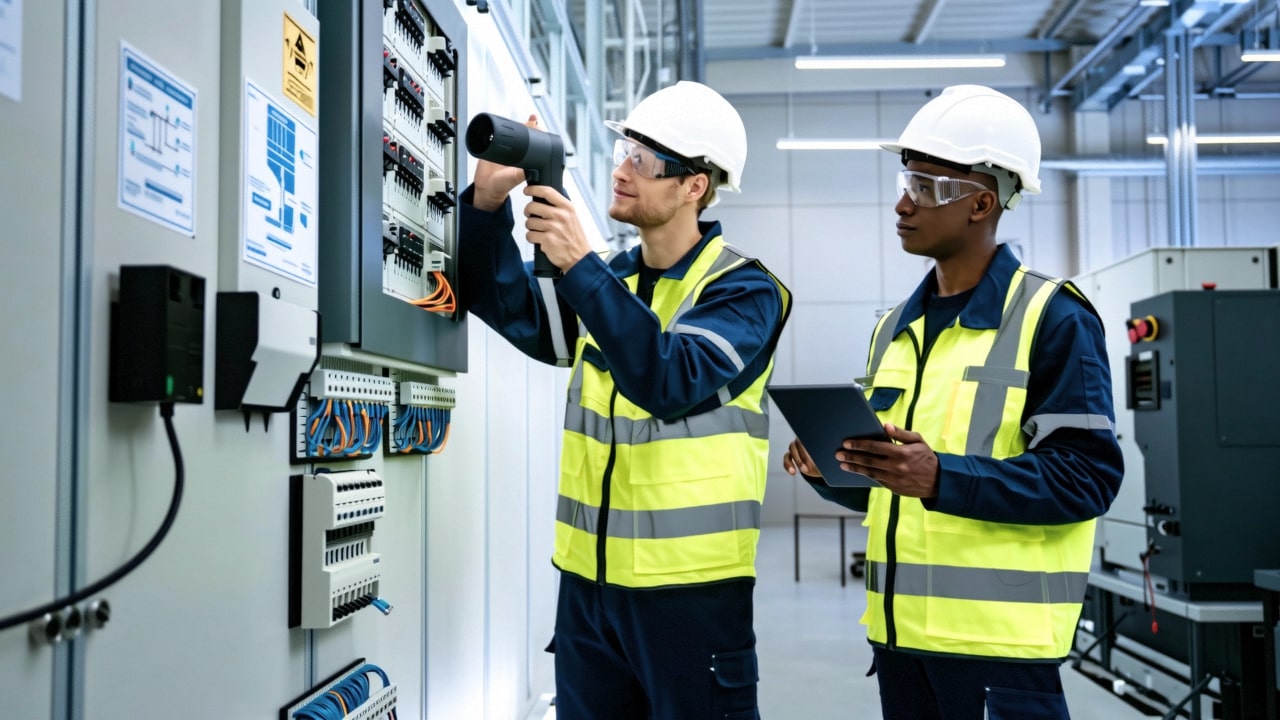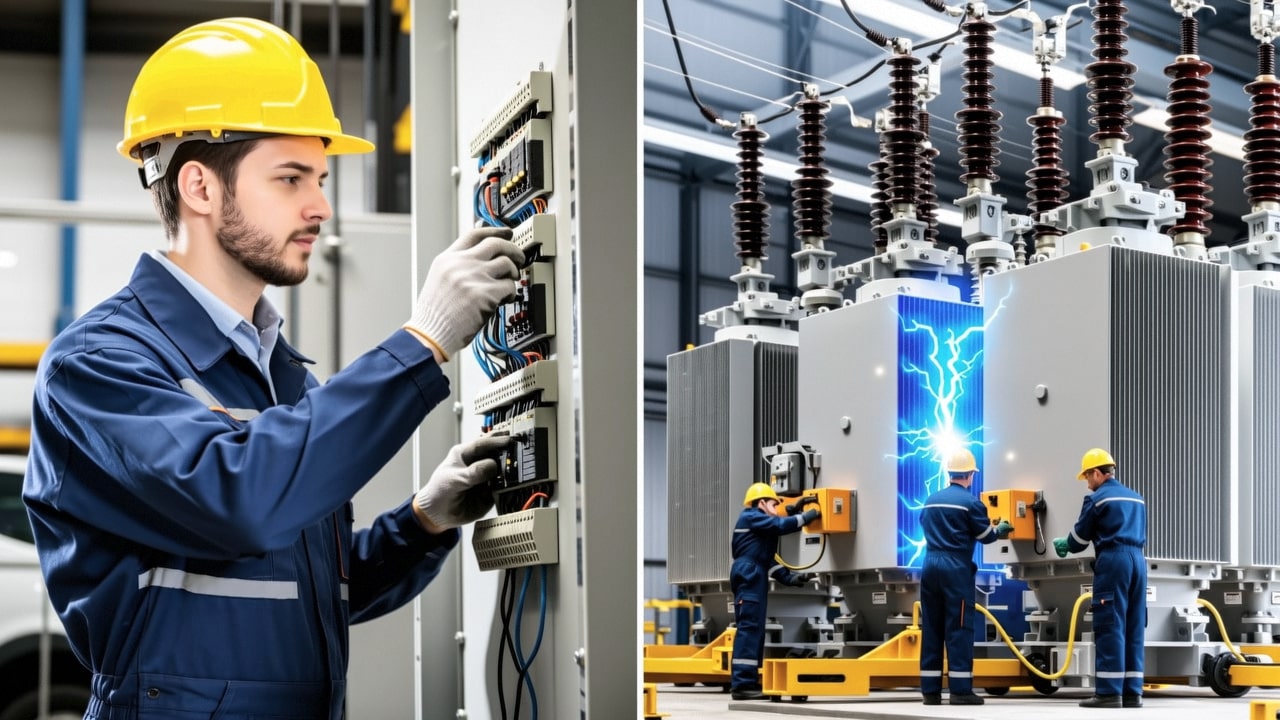Your production line doesn't care about your budget - it only cares about uptime. Here's how to pick the Industrial electrical Technician who speaks your facility's language.
Picture this: It's 2:47 AM on a Tuesday, and your main production line just went dark. Not flickering. Not sparking. Just... dead. The silence is deafening, and every second of downtime is costing you thousands. Your phone is buzzing with calls from supervisors, and you're frantically scrolling through contacts asking yourself the million-dollar question:
Who do I call?
Here's where most facility managers make a costly mistake. They think all electrical professionals are created equal. Spoiler alert: they're not. And in the industrial world, that difference can make or break your entire operation.
The Great Industrial Electrical Divide

Let's settle this once and for all. When your facility's electrical systems are more complex than a NASA launch sequence, you need someone who doesn't just understand electricity - you need someone who understands your electricity.
The Factory Electrician: Your Everyday Hero
Think of a factory electrician as your facility's electrical firefighter. They're the ones who show up when things go wrong, armed with multimeters and the kind of troubleshooting skills that would make Sherlock Holmes jealous.
What makes them special:
But here's the thing - and this might surprise you - even the most skilled factory electrician has limits. When your facility needs a complete electrical overhaul, or when you're dealing with high voltage electrical systems that could literally kill someone who doesn't know what they're doing, that's when you need to level up.
Industrial Electrical Contractors: The Electrical Architects
Now we're talking about the big leagues. Industrial electrical contractors aren't just fixing problems - they're preventing them. They're not just maintaining your systems - they're optimizing them. They're the difference between surviving and thriving in today's competitive industrial landscape.
Here's what separates the contractors from the electricians:
When Your Facility Demands Industrial-Grade Solutions

Let's get real about when you absolutely, positively need an industrial electrical contractor versus when a skilled factory electrician will do the trick.
Call the Industrial Electrical Contractor When:
Your Factory Electrician Shines When:
The Truth About National Electrical Contractors vs Regional Specialists
You've probably wondered: should I go with one of those massive national electrical contractors, or stick with regional specialists who understand my area?
The secret? The best choice depends on your specific needs, not the size of the contractor's business card.
The Hidden Costs of Getting This Wrong
Here's what keeps facility managers up at night: choosing the wrong electrical professional doesn't just cost money - it costs opportunity.
Choose wrong, and you might face:
Choose right, and you get:
The Bottom Line: It's About Partnership, Not Just Power
At the end of the day, whether you need an industrial electrical contractor or a factory electrician isn't just about the complexity of your electrical needs - it's about finding the right partner for your facility's success.
The best industrial facilities don't just have electrical professionals - they have electrical partners. People who understand that your uptime is their responsibility. People who think about your electrical needs even when you're not thinking about them.
So the next time you're faced with an electrical decision, ask yourself: "Am I looking for someone to fix a problem, or am I looking for someone to prevent problems from happening in the first place?"
Your production line - and your bottom line - will thank you for choosing wisely.
Ready to find your electrical partner? The right industrial electrical contractor isn't just someone who shows up when things break - they're the ones who make sure things don't break in the first place. Because in the industrial world, there's no such thing as "good enough" when it comes to keeping the lights on and the production lines running.

